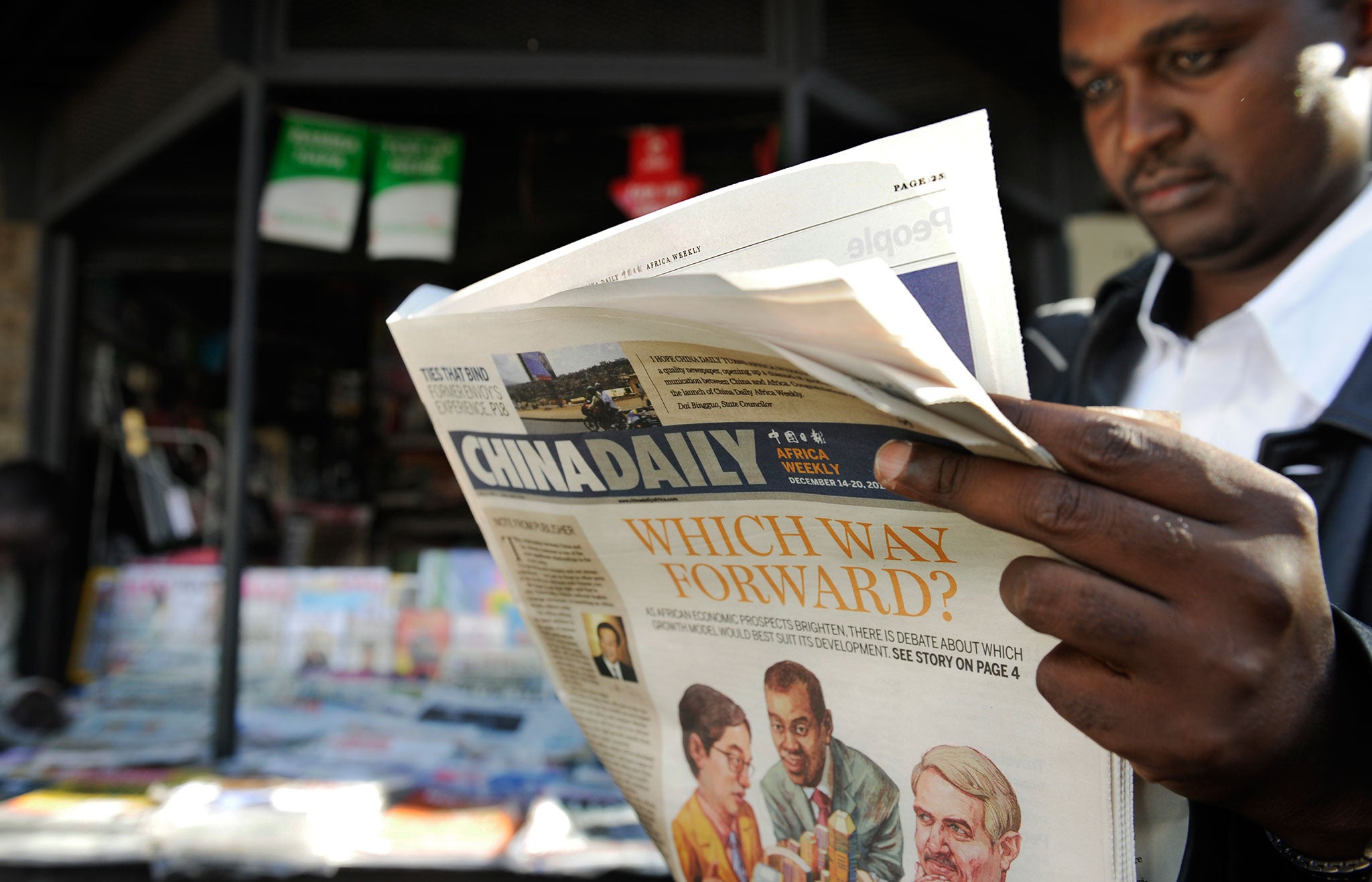Too often the West sees Africa as a pawn in a power game: John Kerry for one should know better
The new US Secretary of State called US-Sino competition in Africa a "game"

John Kerry, the newly-approved US Secretary of State, appeared at the Senate foreign relations committee last week. Among other things, he warned that “China is all over Africa”, and likened the jostling between China and the US for influence in (or over) Africa to a “game”. He then explained that this “game” was not set in “Cold War terms”, but was, instead, about “business contracts, business opportunities, jobs for Americans, and opportunities to export”; “foreign policy is economic policy”, he declared. Americans needn’t worry, though. Kerry thinks this is a “game” the US can “win”.
I have four points to make. First, while the Chinese are indeed engaging with a large number of African states, Kerry’s language is needlessly alarmist; this will only serve to heighten tensions between the US and China.
Second, to describe Sino-African versus US-African relations as a “game” infantilises the subject. This is international relations: countless people’s livelihoods (and, indeed, their lives) are at stake.
Third, Kerry frames the US and China as competitors for Africa’s natural resources — “they’re buying up long-term contracts on minerals, you name it” — and this adds to a ‘New Scramble for Africa’ narrative in which Africans appear merely as pawns in a Great Power contest (much like, say, the Cold War).
And fourth, part of the reason why Kerry is so worried about Chinese activity in Africa is because the main way Sino-African relations are perceived in the West begins and ends with China: in the standard “China in Africa” model, Africa is just an empty space subject to outside interference.
Dominant
There has been a lot of commentary on Sino-African relations over the past few years, and Kerry’s statements were just some of the more recent. In the West, much of it has been gloomy: some (such as Kerry) see China as muscling-in on “Western spheres of interest”; others worry, opaquely, about how China’s human rights record will affect Africa’s; and still others warn of “Chinese neo-colonialism’”. Against the pessimism, several cautiously optimistic voices have highlighted the benefits these interactions could bring to Africans, the Chinese, and global trade more generally.
Notwithstanding their differences, however, a common thread unites them: China is presented as the dominant agent. Africans, where there appear at all, are presented as passive victims or dupes. Even in academic analyses, where more weight is granted to the African side of these relations, commentary rarely goes beyond the state level. This means that Africans often emerge as the corrupt stooges of old, and ordinary Africans don’t feature.
There is some truth to all these. But as a recent study points out, Africans themselves are actively affecting, shaping, and “sometimes even driving” these relations. Far too little is made of how Africans have been cannily negotiating to their own advantage - although questions remain over how equitably, and effectively, these interactions are conducted.
The authors of the study, Mohan and Lampert, argue that how Africans fare in their negotiations with Chinese largely depends on the political, economic and social situation in the African state one’s referring to. Take, for example, the efforts of the populist Sata government in Zambia. In November 2011, they managed to double state royalties on copper to 6%, fulfilling pre-election pledges to limit perceived Chinese imperiousness in the process. This was widely hailed in Zambia as a success for the country as a whole, not just for the politicians and businesspeople who signed it off.
In comparison, the Angolan government has negotiated $14.5 billion in credit from China’s three state-owned banks (2002-2011), but the benefits might not reach all Angolans. Although little conditionality was attached to these loans, and over 100 crucial infrastructure projects have been started as a result, Angola is what Chris Alden has dubbed an “illiberal regime with weak democracy” — it’s far from clear how fair and transparent these negotiations were.
Power games
Beyond the state level, and in other countries where data is more readily available, it seems ordinary Africans are sometimes driving these relations. Traders from Nigeria and Ghana told the authors that it was Africans who were primarily responsible for the influx of cheap, Chinese-manufactured goods into their countries — not the Chinese. All this makes clear the broader picture of Sino-African relations is far more complicated than the standard “China in Africa” model would suggest.
Still, Mohan and Lampert stress the dangers of “crudely reversing the analytical lens”. There are obvious economic and political power asymmetries between China and the African states they interact with; it would be a mistake to say that Africans are in dominant positions across the board. Moreover, we should not be blind to the problems the Chinese presence has brought — poorly constructed infrastructure, low pay for workers, government corruption, and so on. Generally, the Africans that have benefited the most have been the elites. But our analyses of Sino-African relations would be a good deal more optimistic if we accorded more of a role to the African component of Afro-Chinese interactions. The incoming US Secretary of State would do well to do this: he will not “win” this “game” if he doesn’t.
Join our commenting forum
Join thought-provoking conversations, follow other Independent readers and see their replies
Comments
Bookmark popover
Removed from bookmarks